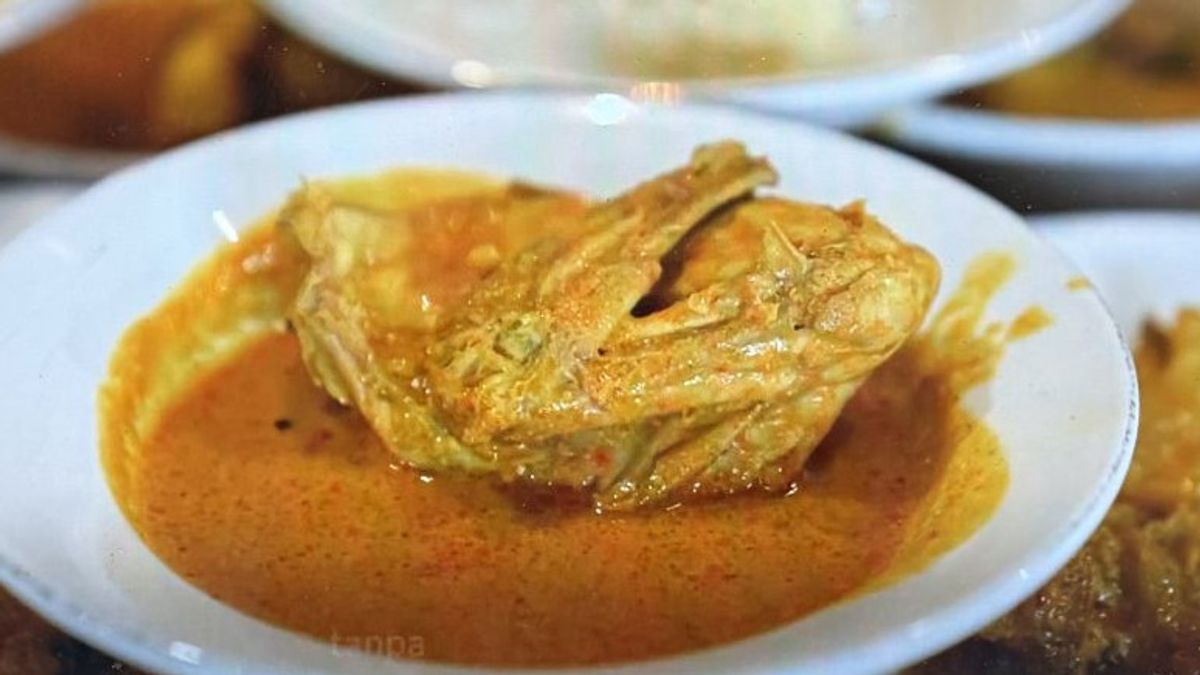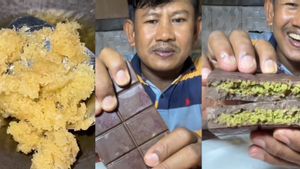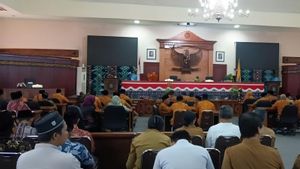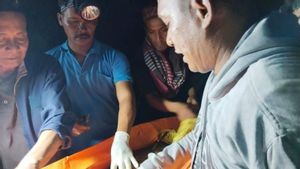JAKARTA - One by one, large dishes filled with side dishes are presented in front of customers, lined up on tables in abundant doses. Once the waiter arrives with a bamboo basket filled with side dishes, they will serve it directly to the table. That's typical Minang restaurant.
Usually, white rice that is still hot will be accompanied by various side dishes such as beef rendang, pop chicken, guari tunjang (also known as kikil sugar), green chili sauce or red chili sauce, balido fish, and many more.
In the restaurant too, every meal seems to tell a story about a long tradition, which takes visitors as if they are returning to Minangkabau land, where all these flavors come from. Every dish that is held on the table is not just food, but a time journey that connects the past with the present.
In each plate presented, it contains a philosophy of deep life, which maintains a balance between taste, health, and social relations.
This is one of the cultural experiences that stands out in the culinary delights of West Sumatra, namely the presentation of side dishes that are not stingy with spices and the wealth of coconut milk in their dishes.
Santan is indeed an integral ingredient in Minang cuisine. He gives a rich taste, taste, and a thick texture that is characteristic of every dish. Although coconut milk is often considered to contain saturated fat which is at risk for heart health, in fact, Minang foods rich in coconut milk do not tend to cause cardiovascular problems in many Minang people.
VOIR éGALEMENT:
Why is that? The answer lies in the traditional way of cooking and the balance of eating patterns that are naturally applied in Minangkabau culture.
Yan Heri, one of the restaurant owners in the city of Padang, said that although it was abundant, the use of coconuts during the cooking process was not arbitrary. The Santan used comes from fresh coconuts which are cooked directly and cooked for a long time with small flames so that it can remove most of the oil from the coconut, making it a fat that is easily absorbed by the body. In addition, he also uses various spices that not only give a taste, but function as a balance for the health of the body.
The food served here is a healthy food for consumption. Especially mixing spices in it so that the authentic taste in it is maintained. We also do not use packaged coconuts that usually contain preservatives or other additive substances, "said the owner of the Simple Restaurant as reported by ANTARA.
This claim is in line with the findings of a nutritionist at Andalas University, Prof. Masrul, who emphasized that the balance of ingredients and the way of processing is the key to the success of Minang cuisine in maintaining heart health even though it uses coconut milk.
Spices used in Padang cuisine, such as turmeric, ginger, pepper, and chili, have anti-inflammatory and antioxidant properties that can reduce the risk of inflammation and reduce levels of bad cholesterol in the blood, two main factors called Masrul affect cardiovascular health.
This ethnicity turns out to be biochemically has a double chain, so it doesn't include the high risk. Because, if coconut milk is the cause, I think of course it has been stopped by the people here for a long time. The second is rich in spices, there has been research, spices are also as antioxidants, the third is a lot of vegetables," he said.
Apart from spices, the culinary heritage of West Sumatra, such as dadih, is also a reflection of local wisdom values and a form of concern for health.
Based on information from the Agriculture Service of Horticulture and Livestock Plants in Agam Regency, 2021, these buffalo dairy processed products have become part of the people's daily traditions, which are not only delicious dishes, but also natural bidders to control cholesterol.
Made from traditional fermented cow's milk, dadih contains natural probiotics that are shown to improve digestive health and help lower levels of bad cholesterol (LDL) in the body. Probiotics help maintain the balance of microfloras in the intestines, support digestive health, and increase the absorption of nutrients from foods, including fat from coconut.
ANTARA also had the opportunity to visit the process of making dadih at Iskal's residence, one of the next generations of tradition of making dadih, which lives in Ngarai Sianok, Bukittinggi, West Sumatra. Here, dadih is made in a very traditional way, using fresh buffalo milk directly processed from livestock.
Dadih, which is produced, comes from the pet buffalo Iskal itself. To produce good quality milk, buffalo need to be fed grass so that their water levels are low and the milk they produce is not acidic.
The process of making boiling begins with heating the dairyd buffalo milk, then filtered and inserted into bamboo in order to bind the smell and thicken faster. After that, it is mixed with natural probiotic bacteria that function for fermentation.
During fermentation, the milk turns into boiling with a soft texture and a slightly acidic taste. This fermentation process takes several hours until the boiling is ready to be served.
Generally, people mix dadih with fatty foods such as packaged vegetables, but there are also those that make them as desserts, such as ampiang dadiah, typical West Sumatra snacks made of glutinous rice.
Many Ngarai people still consume dadih. Usually Iskal sells dadih to markets, it can reach tens of water cylinders a day.
Spices and durdies are two unique elements of traditional West Sumatra culinary. Both played an important role in maintaining the health of the body, which in turn contributed to an increase in the life expectancy of the people of West Sumatra.
However, these traditional culinary health benefits are not limited to careful food processing and selection of natural ingredients. Local governments also play a crucial role in optimizing people's life expectancy by increasing disease prevention and treatment, especially catalysts and cardiovascular disease, which is often the main cause of death in many countries, including Indonesia.
Head of the West Sumatra Provincial Health Office, Lila Yanwar, revealed the importance of early detection and prevention in dealing with potentially deadly diseases, such as heart disease, hypertension, and diabetes.
The increase in the life expectancy of the people of West Sumatra is now recorded at 73.5 years or almost touching the average life expectancy of the Indonesian population which reaches 73.93 years.
This is an encouraging achievement and reflects significant progress in the health sector. One of the factors contributing to this achievement is the combination of preventive efforts through healthy diets and early detection of catalyst diseases, including cardiovascular disease which is often the main cause of death.
In addition to healthy eating habits that have become part of local culture, the West Sumatra Health Office also emphasized the importance of preventing and detecting diseases faster to reduce deaths from disease. This healthy lifestyle has made the life expectancy of the people of West Sumatra better.
With better access to health services and the success of early detection programs, the people of West Sumatra are now better able to manage their health better, which contributes directly to the increase in life expectancy.
The West Sumatra Health Office is intense in going to the field to hold events in each area related to the movement of people living a healthy life, such as gymnastics together, then making fruits a consumption during meetings.
Thus, Minang cuisine which has been often feared because of the content of coconut milk and saturated fat, from the results of Prof. Masrul's research. Masrul is known to have no negative effect on the decline in health of the people of West Sumatra.
Through proper processing and balance of use of spices - especially if accompanied by consuming dadih - masakan Minang instead provides health benefits, as long as consumed wisely.
The English, Chinese, Japanese, Arabic, and French versions are automatically generated by the AI. So there may still be inaccuracies in translating, please always see Indonesian as our main language. (system supported by DigitalSiber.id)


















